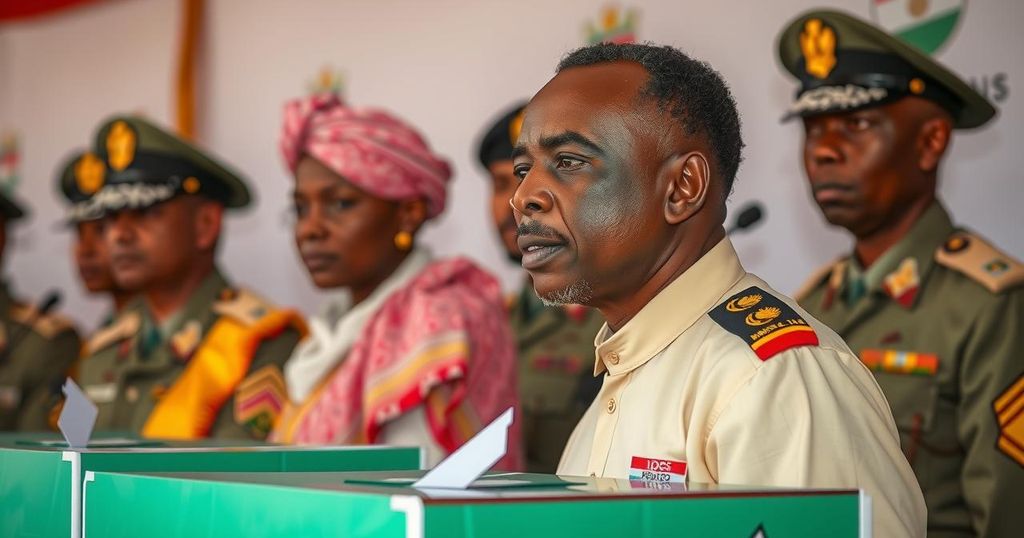Chad’s General Election Under Low Turnout and Opposition Boycott
Chad held a general election amid low voter turnout, with opposition parties urging a boycott amid claims of pre-determined outcomes. Criticisms of the electoral process raised concerns about legitimacy, as citizens faced socio-economic challenges and political disillusionment. President Deby called for mass participation, while reports of missing ballots and ongoing threats from Boko Haram complicate the political landscape in Chad.
Chad held a general election on Sunday, which the government touted as a crucial move towards ending military governance. However, voter turnout was low, with early reports indicating a mere 38 percent participation, as opposition groups encouraged citizens to boycott the election, deeming its results predetermined. Success Masra, leader of the Transformers party, claimed that the majority of voters heeded this call and abstained, while President Mahamat Idriss Deby Itno, who ascended to power after a military coup in 2021, urged constituents to vote in what he called a historic event. Opposition figures criticized the electoral process, alleging widespread corruption and foreseeably manipulated outcomes, leading many potential voters to feel dissuaded from participating. They cited challenges such as economic hardship and political disillusionment, emphasizing that without genuine democratic processes, their votes would not yield significant change. Furthermore, election management agencies reported discrepancies in the electoral process, including missing ballots, and warned against suspected fraud networks tied to the ruling party. Amid ongoing threats from groups like Boko Haram, this election is seen not only as a political exercise but also as a critical juncture in Chad’s struggle for stability and democratic governance.
Chad has experienced three years of military rule following the death of long-time President Idriss Deby in 2021. Political transition efforts have faced significant hurdles, notably affecting the credibility of electoral processes. The call for a boycott by opposition parties has increased public skepticism regarding the legitimacy of elections, maintaining a challenging environment for political engagement. Given the history of heavy-handed governance in Chad, elections are often viewed as predetermined, and public faith in the democratic process has eroded. Additionally, the country faces socio-economic challenges exacerbated by climate change and security threats from militant groups, making the stakes of the elections particularly high.
The recent general election in Chad underscores the persistent challenges of transitioning from military to democratic governance, marked by low voter turnout and significant opposition boycotts. Despite the government’s proclamations of progress, widespread skepticism regarding the electoral integrity remains prevalent, emphasizing the need for substantive reforms. As Chad seeks to navigate its political future, addressing civilian discontent and fostering trust in the electoral process will be critical to achieving stability and democratic legitimacy.
Original Source: www.communitynewspapergroup.com




Post Comment